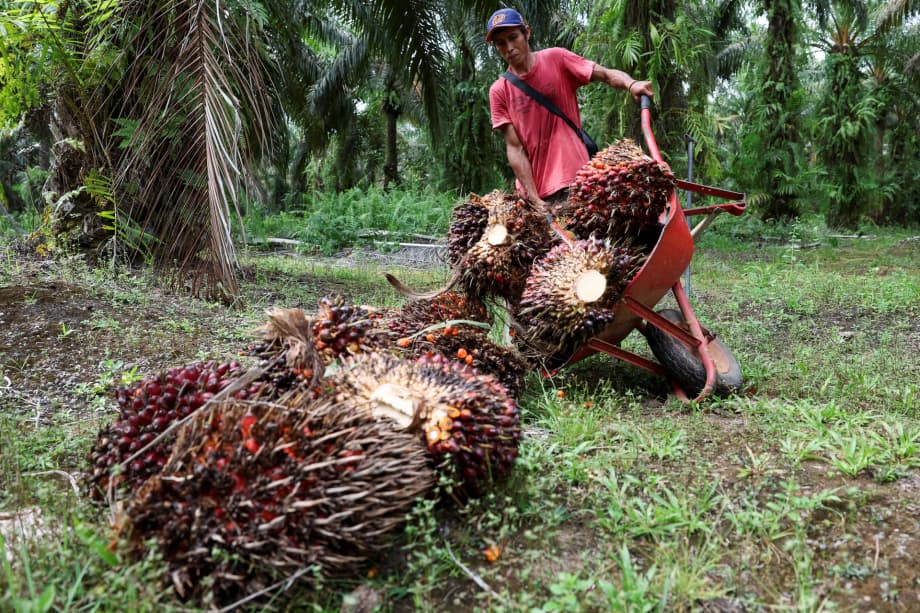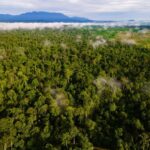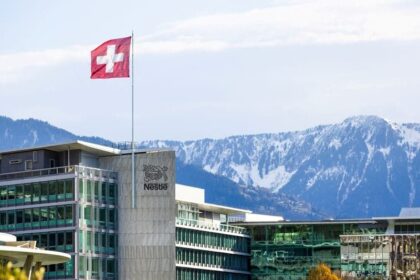A sweeping move with global consequences
Soldiers in fatigues walked into palm oil estates on Borneo in late June, posted government signboards, and declared the land under state control. That scene at the Melati Hanjalipan plantation marked the start of a rapid campaign that has touched the core of the world’s biggest palm oil producer. Authorities say about 3.7 million hectares of private plantations have been seized. Nearly half of that area has been transferred to the new state firm Agrinas Palma Nusantara, turning it into the largest palm oil landholder on the planet by area. The presidency has ordered a sweeping review of concession legality, placing about 5 million hectares, roughly 30 percent of Indonesia’s palm acreage, under scrutiny. Much of the land could move to Agrinas.
- A sweeping move with global consequences
- Who is Agrinas and can it run the estates
- The legal maze behind the seizures
- Smallholders and communities under pressure
- Corporate giants face probes and asset freezes
- Cross sector enforcement widens beyond palm oil
- Market impact, trade routes and consumers
- Politics and militarization of land governance
- The Bottom Line
Indonesia supplies more than half of the world’s palm oil and ships close to 30 billion US dollars worth a year. The crackdown arrives as edible oil markets are already tight, since Indonesia channels a growing share of crude palm oil to biodiesel. Company managers say they have cut fertiliser use and routine upkeep in areas seen at risk of takeover. That choice protects cash in the short run, yet it leads to lower yields within months. No major producer has publicly challenged the seizures. Executives describe a climate of fear and keep their names off the record, a sign of how sensitive the moment has become.
How big is the takeover
The land shift spans household names and smaller operators. By September, Agrinas was overseeing about 1.5 million hectares, with a goal to manage 3 million by 2029. The campaign touches nearly every part of the supply chain, from field workers and smallholder cooperatives to mills and refineries. Palm oil supports a workforce of about 16 million people in Indonesia when farm labor, processing, logistics and related services are counted. At Melati Hanjalipan, output has already plunged under state control, a sign of the operational strain that can arise during abrupt transitions.
The presidency frames the drive as an anti graft push and a long overdue enforcement of land rules. A task force combining soldiers, police and prosecutors is prioritising plantations that sit inside areas classified by the state as forest. At the same time, Agrinas has been tasked to produce palm based diesel and to anchor a large share of the domestic cooking oil market. Those goals give a young operator, without a palm track record until this year, both commercial and policy roles.
Who is Agrinas and can it run the estates
Agrinas Palma Nusantara was created in January 2024. It is led by a retired special forces commander and, until this year, had no experience running palm oil plantations. In March, the government assigned Agrinas to take control of seized assets and to coordinate palm oil operations. By September, it had a land bank under supervision larger than any private group in Indonesia, despite still building basic management systems. That rapid handover worries planters and traders who say palm is a demanding crop. Harvesting, fertiliser regimes, pruning, pest control and mill maintenance must run on tight schedules. Lapses quickly show up in lower bunch weight and weaker oil extraction rates. Melati Hanjalipan, a 106 hectare site, saw monthly output drop from about 100 tonnes to around 23 tonnes once its status became uncertain, according to local managers. Such declines can take seasons to reverse.
Agrinas has also been asked to help stabilise domestic supplies. The company is expected to play a central role in securing cooking oil for households and in meeting ambitious biofuel targets. That is a tall order for a team still assembling agronomy, mill engineering, procurement, and marketing capacity across a patchwork of far flung estates. The learning curve is steep, and the risk of execution missteps is high if expertise and funding are not in place.
Cooking oil and biodiesel goals
Indonesia’s biofuel program raises the share of palm based diesel in the national fuel mix. More crude palm oil flowing to diesel tightens the volume available for export or for food uses in importing countries. Authorities have also discussed a target for Agrinas to cover a large slice of domestic cooking oil distribution to keep retail prices stable. That kind of concentration can make it easier to steer supplies in a crisis. It can also reduce flexibility for exporters and complicate logistics for private refiners if decision making becomes centralised.
The legal maze behind the seizures
At the heart of the campaign sits a long running legal and mapping problem. Indonesian law divides land into areas classified as forest and areas that can host agriculture, housing and other uses. The boundaries have moved over time as regulations evolved and maps were revised. Many palm growers hold local permits, tax letters or land certificates that they consider valid. Jakarta can still view a portion of those holdings as forest, which requires a different set of approvals, including a formal forest release. The process to regularise permits has often been complex and slow.
Officials say the task force will prioritise estates that lack proper paperwork inside forest areas. Even companies that advertise sustainability certification have come under review because the forest designation is a separate legal test from voluntary standards. Smallholders and transmigrant farmers are caught in the same web. Many do not have complete documents, or their land later fell inside updated forest maps. Without a clear pathway to legal status, fear spreads and investment halts on small plots that supply nearby mills. That undermines livelihoods and erodes trust in formalisation programs.
Smallholders and communities under pressure
When maintenance budgets are cut or a takeover interrupts routine care, the oil palm tree shows stress quickly. Fruit bunches shrink, harvesting slows, and mills run below capacity. Wages fall for casual workers who depend on steady picking. Many smallholders hesitate to sign cooperation agreements with Agrinas without land guarantees. They worry that once they join, their land rights will be diluted. The drop in output at Melati Hanjalipan highlights how fast uncertainty can translate into real barrels lost for the market.
Rural tensions can rise when uniforms replace agricultural extension officers. Kalimantan and Sumatra host diverse indigenous communities and long standing land customs. Researchers warn that the use of armed forces in conservation and land oversight risks escalating disputes, displacing families, and fraying cooperation with communities that often protect forests when given secure rights. Strong enforcement is vital to stop illegal deforestation. It works best when paired with transparent mapping, fair conflict resolution, and community based stewardship that rewards legal compliance.
Corporate giants face probes and asset freezes
The task force has named subsidiaries of several large industry groups among those it says operate inside forest areas without proper permits. The list includes units linked to Wilmar, SD Guthrie, Sinar Mas, Musim Mas, First Resources and Cargill. Some companies have opened talks with Agrinas to settle disputes and keep mills supplied. Others report disruptions in harvesting and transport while they review boundary maps and permits with local governments.
What companies say
Wilmar Group is also facing a separate legal process tied to crude palm oil exports in 2021. The Attorney General’s Office took in about 11 trillion rupiah from five Wilmar subsidiaries as a guarantee linked to alleged state losses, even as a Jakarta court acquitted corporate defendants. The prosecution has filed a cassation appeal. In an official press statement, the company defended its conduct.
Wilmar maintains that all their actions were carried out in good faith and without corrupt intentions.
Legal risk is now a boardroom priority across the sector. Producers are delaying new investment and cutting field spending in concessions that might be seized or require complex regularisation. That approach preserves cash but raises the odds of a national yield dip. Banks and trade houses are reviewing credit exposure and insurance coverage for clients with land inside disputed zones. A sustained loss of just a few percentage points in Indonesian output would tighten global supply and lift prices for months.
Cross sector enforcement widens beyond palm oil
Authorities have begun to apply forest rules across other extractive industries. In one recent case, the government sealed off about 150 hectares at part of the vast Weda Bay Nickel concession on Halmahera for encroaching into forest without proper permits. Partners at the project said the sealed area hosted a quarry for construction and maintenance, and that mining operations continued. Nickel is central to Indonesia’s industrial strategy and electric vehicle supply chains. The move signaled that forestry compliance reviews are now sector wide, although the scale and social reach of the palm campaign remain far larger.
Market impact, trade routes and consumers
Palm oil is the workhorse of the global vegetable oil trade. It is used in cooking oil, instant noodles, baked goods, detergents and cosmetics. Indonesia and Malaysia dominate global supply. When Indonesia diverts more crude palm oil to biodiesel, it reduces export availability for edible uses. The current seizures add another constraint. If field spending stays low and handovers drag on, yields fall and mills process less fruit. Importers in India and China would face higher costs and could switch to soybean, sunflower or rapeseed oil. Those alternatives have their own limits, since weather, war and trade policies can squeeze supply.
Domestic stakes are just as high. Indonesian households and food makers are sensitive to cooking oil prices. The government wants enough crude palm oil reserved for local needs, a steady biodiesel supply, and stable retail prices. Meeting every goal at once is hard when production growth slows. Plantations need predictable rules to commit money for replanting older trees and for mill upgrades that raise extraction rates. Industry guidance had projected a small rise in 2025 output to about 53.6 million tonnes, yet the current uncertainty is pushing producers to scale back activity that supports that growth path.
Politics and militarization of land governance
President Prabowo Subianto has widened the role of security institutions in civic affairs. Retired generals sit on the board of Agrinas. A task force of soldiers, police and prosecutors is driving enforcement at a pace rarely seen in the sector. The presidency casts the campaign as a fight against entrenched business interests that secured land by bending rules. Investors read the moment as a consolidation of power and a clear signal that ministries and courts will back headline seizures in the name of law and order.
For the palm industry, the key variables now are clarity and capacity. Clarity means public maps that all sides trust, clear steps to convert disputed concessions into legal titles or to return them to the state, and fair treatment of smallholders who acted in good faith. Capacity means operators, including Agrinas, have the people, money and systems to keep trees fed, fruit moving and mills running. Without both, anxiety spreads across farms and boardrooms, and output risks a multi year drag that will be felt on supermarket shelves far beyond Indonesia.
The Bottom Line
- Troops have seized about 3.7 million hectares of private palm estates, and roughly 5 million hectares are under government review.
- Nearly half of the seized land has been handed to Agrinas, a new state firm led by retired military officers.
- Producers have cut field spending in at risk areas. Some estates, such as Melati Hanjalipan, report sharp yield drops.
- Subsidiaries of major groups, including Wilmar, SD Guthrie, Sinar Mas, Musim Mas, First Resources and Cargill, face scrutiny for operations in forest zones.
- Long standing confusion over forest status and permit requirements sits at the core of the seizures.
- The government also sealed land at a large nickel project for forest violations, signaling broader enforcement.
- Smallholders and transmigrant farmers have been swept into the process, often without secure land rights.
- Any sustained fall in Indonesian output would tighten global edible oil supply and raise prices for consumers and importers.












